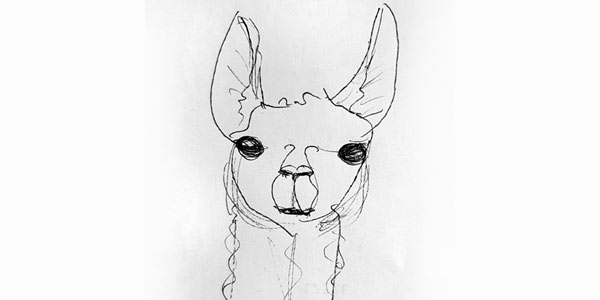
It’s a misty afternoon out on the Astroturf and there’s a chill in the air. I stand chatting to one of my buddies – we laugh and joke. Others walk laps around the small pitch and a few guys kick an old vaping pod around, taking shots at the goal. Above us, seagulls scream and fight over rolls tossed out of barred windows. A honey bee takes slow frigid steps on the ground close to my feet. I imagine that by the time the hour is out it will have been trampled into the plastic turf like so many before it.
A guy who I speak to most days walks towards us. I have come to know and like him over the past few months, despite his rather unpredictable aggressive streak. He walks close by and, with a violent head thrust, fires a mouthful of spit into the face of the guy I’m chatting to. He continues his lap with a swagger, boasting about what he has just done as he passes some other guys. The three or four youngest of them laugh and howl and an image comes to my mind of a troop of chimpanzees, leaping, screaming, grinning; a frenzy of teeth and testosterone.
I call out to the spitter across the pitch: “that wasn’t cool, it was just stupid.” He looks across at me and a hint of sadness crosses his face. I immediately regret my choice of words, as I realise they will open up wounds of his childhood – a childhood marked by feelings of failure and inadequacy that he had explained to me once, began on his first day of school. I feel ashamed that my instinctive response was to target these wounds; to pick them open in front of everyone. It occurs to me that I am no less an animal than these chimps.
As the shouting continues I step closer to my spit-dripping friend and others do the same – horned wildebeest shielding a calf. He is shaking but more out of anger than fear. His face still hasn’t healed from his last attack – a plastic chair to the face which split the skin between his eyes.
The spitter is taken away by the wardens and almost immediately the spell is broken. The laughing stops and the bravado dissipates. A sense of relief settles on us all.
Later, I go the honey bee and let it crawl onto the tip of my finger. Holding it up, I whisper to it to fly back to the warmth of its hive; to escape the trampling feet. But it is too cold to move. Instead I place it gently at the pitch side, in the hope that the mist will burn off in time to warm its body before the gulls find it.
The next morning, my “spat on” friend is told to pack up his stuff – he is to move to a different hall for his protection.
Out in the yard that afternoon, the air is still slightly unsettled. The gulls continue to bully and bicker. Walking around with one of the guys, I look for the honey bee, but can find no trace of it.